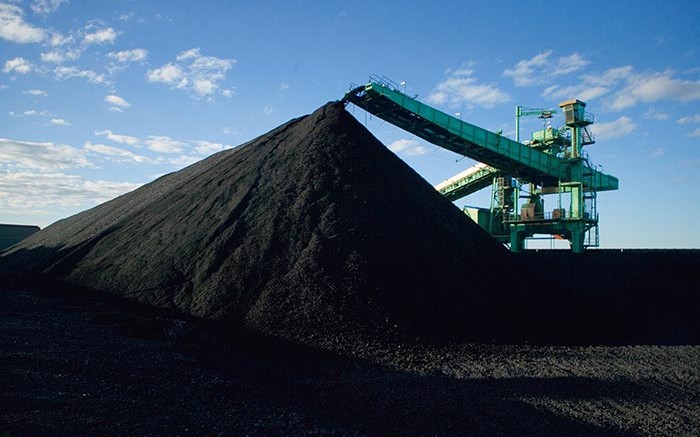With the mining sector generating 14% of Canada’s greenhouse gas (GHG) emissions, the presence of climate change presents the sector with both opportunities and risks. The transition to a low-carbon economy will require substantial development of low-carbon substitutes for aviation, shipping and road freight, the development of biofuels, and the scaling up of carbon capture and storage. Fortunately, the mining sector is well placed to take advantage of these developments, as there is a growing market for minerals and metals in a carbon-constrained world.
The Canadian mining sector is aware that climate change is an urgent global issue. As noted by the Intergovernmental Panel on Climate Change in 2018, there is clear scientific consensus on anthropogenic warming, elevated impacts of acute events and significant risks to companies as a result. Companies looking to lower their carbon footprint can do so by reducing their GHG emissions, using energy efficient technologies and by diversifying production of minerals as opportunities arise. However, climate change differs from other risks that mining companies face because of the systemic and interconnected risks that can act as a risk multiplier. Directors and officers of mining and minerals companies need to have an effective governance strategy in place to oversee the transition to a low-carbon economy and reap the opportunities this shift presents.
Demand for certain minerals and metals likely to rise in our carbon-constrained future.
In 2017, the World Bank analyzed the role of minerals and metals in a carbon-constrained world, finding that there is likely increased demand for aluminum, cobalt, copper, iron ore, lead, lithium, nickel, manganese, the platinum group metals, rare earth metals, silver, steel, titanium and zinc. For example, the World Bank observed that demand for copper will increase substantially with greater adoption of renewables and growing markets for electric vehicles and electronics, as copper is durable, antibacterial, corrosion resistant and 100% recyclable.
However, the sector’s opportunity to capitalize on this transition does not come without risk. The Taskforce on Climate-related Financial Disclosures (TCFD) identified several key areas of risk related to a low-carbon transition. They include policy, litigation and technology risks, as well as shifts in investor and consumer preferences. In addition to the transition risks, the sector also faces increasing physical risks, such as damage from acute and chronic events like flooding and extreme heatwaves. There is an urgent need for boards to be strategic in their deliberations as to how to reduce GHG emissions and enhance climate resilience.
It is well-established that directors’ and officers’ legal duties are to act in the best interests of their companies. The Supreme Court of Canada has held that “every director and officer of a corporation in exercising their powers and discharging their duties must exercise the care, diligence and skill that a reasonably prudent person would exercise in comparable circumstances.” With climate change impacts so well documented, it is reasonable to conclude that there is a fiduciary obligation on the directors and officers to consider and address the impacts of climate change on the mining business. While Canadian judgments have not yet been rendered, corporate and common law fiduciary obligations make it clear that there is a duty on directors to address climate change where material. Provided that directors are duly diligent, and decisions taken are reasonable, courts will defer to their business judgment, even where decisions are made with imperfect information.
What do legal duties mean for mining and minerals companies?
Effective climate governance is critical for the transition to a low-carbon economy. Best practices dictate that a corporate board should have effective oversight of its climate strategy, including identifying climate-related risks and opportunities that are emerging or increasing in significance for the company. It should have adopted appropriate strategies to manage risks and have mechanisms in place to respond rapidly to changes in the company’s risk profile. There should be oversight and monitoring of the actions of individuals charged with managing these risks. It should consider the benefits of implementing green adaption and mitigation technologies — products and services that will likely have upside financial potential. Mining company boards should also approve disclosure of the company’s efforts to manage climate change to its stakeholders, including integrating disclosure in its financial reporting. The TCFD offers technical guidance to sectors as they move to effective governance, risk management, strategy and metrics.
Boards of mining companies can leverage their unique advantage by becoming more climate competent. With an effective governance strategy in place, companies will be well positioned to mitigate the risks and capitalize on the opportunities presented by a low-carbon transition.
— Janis Sarra is distinguished professor and professor of law at the Peter A. Allard School of Law, University of British Columbia. Sarra is a member of the Canadian Climate Governance Experts, a program through the University of British Columbia and York University that offers free sessions with sector-specific experts to corporate boards on effective climate governance. Learn more at https://ccli.ubc.ca/speakers-bureau/.


Be the first to comment on "Commentary: Mining company boards have ‘advantage’ in transition to low-carbon economy"